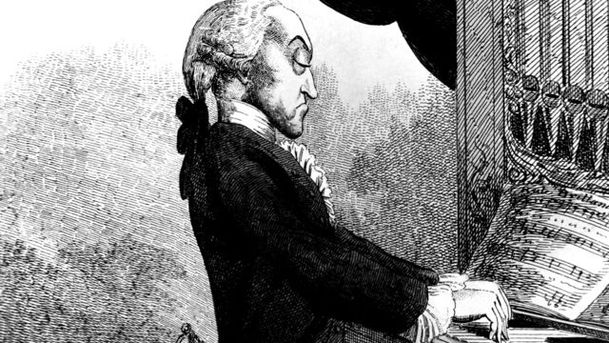Composer of the Week - Thomas Arne (1710-1778) - Episode 1

Thomas Arne is remembered today, if he's remembered at all, by just a handful of popular songs. Even so, these are some of Britain's most enduring melodies. 'Rule Britannia' has its annual outing at the Last Night of the Proms, and his setting of Shakespeare's 'Where the bee sucks' remains the best known of the very many versions of that song. The lasting appeal of these tunes gives us just a hint of the fame and popularity he enjoyed as one of London's most successful stage composers in the 18th century. He had a knack for entertaining the city's well-to-do middle-classes, and wasn't afraid to pander to their more low-brow tastes if that was what put bums on seats. His friends and colleagues, while full of praise for his art, scorned his ungentlemanly character. His self-cultivated image as a 'man of pleasure' was combined with an unscrupulous head for business that Arne inherited from his father. We can all too easily imagine him drooling with anticipation, as he took under his wing yet another talented young actress, dreaming of the riches her voice might bring him as much as any other sorts of pleasures. His reputation as a lecher and a bad husband did him no favours, though, and rather tarnished his professional career. History has not been kind to his memory. The masques and plays that served as vehicles for his music were not designed for posterity and much of his legacy has been lost. Plus, he had the misfortune to live and work alongside England's brightest musical genius, George Frederick Handel, whose brilliance consigned a whole generation of British composers to shadowy obscurity. Nevertheless, even though his story is full of missing chapters, Arne is revealed as one British music's most vibrant characters. (1/5) Donald Macleod introduces us to Dr Arne, musical prodigy, unscrupulous businessman and bad husband; composer of some of Britain's most enduring music including Last Night of the Proms favourite, 'Rule Britannia'.